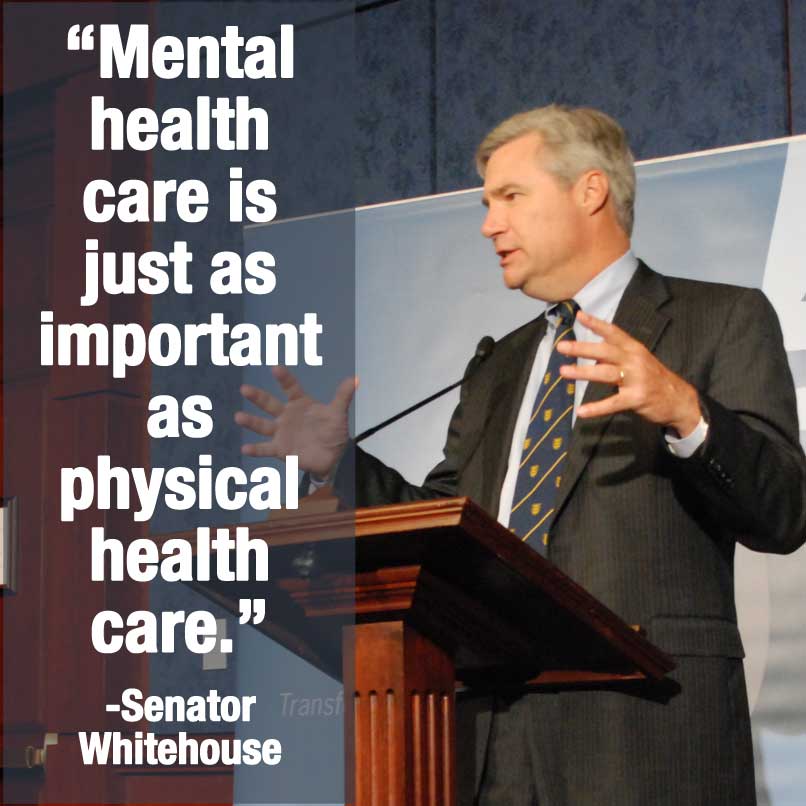 Washington, DC – In 2009, the American Recovery and Reinvestment Act (ARRA) made an unprecedented investment in our medical infrastructure, providing almost $20 billion in incentive funds for health information technology. However, an important group of health care providers were excluded from these incentives: behavioral health, mental health, and substance abuse treatment professionals and facilities. Today, U.S. Senator Sheldon Whitehouse (D-RI) introduced the Behavioral Health Information Technology Act (S. 1517) to correct that inequity.
Washington, DC – In 2009, the American Recovery and Reinvestment Act (ARRA) made an unprecedented investment in our medical infrastructure, providing almost $20 billion in incentive funds for health information technology. However, an important group of health care providers were excluded from these incentives: behavioral health, mental health, and substance abuse treatment professionals and facilities. Today, U.S. Senator Sheldon Whitehouse (D-RI) introduced the Behavioral Health Information Technology Act (S. 1517) to correct that inequity.
“In the wake of this week’s tragic mass shooting in Washington, we are once again confronting questions about the treatment of mental illness in America,” said Whitehouse. “Many questions remain about the shooting, but one thing is crystal clear: mental health is just as important as physical health. This legislation will extend to mental and behavioral health professionals the same assistance given to other health providers, which will help them invest in vital health information technology.”
The Behavioral Health Information Technology Act would enable behavioral health providers, including psychologists, community mental health centers, and psychiatric hospitals, among others, to receive incentive payments for the adoption and meaningful use of electronic health records. More specifically, it would:
- Expand the types of providers eligible for Medicare incentives for the use of electronic health records to include licensed psychologists, licensed clinical social workers, and psychiatric hospitals;
- Expand eligibility for Medicaid meaningful use incentive payments to include community mental health centers, mental health and substance abuse treatment facilities, psychiatric hospitals, licensed psychologists, and licensed clinical social workers; and
- Allows electronic health record incentive payments to eligible professionals and hospitals under Medicare Advantage plans.
Senator Whitehouse previously introduced a version of this bill in the Senate in 2010. Former Congressman Patrick Kennedy also championed this issue in the House until he left office.
###
